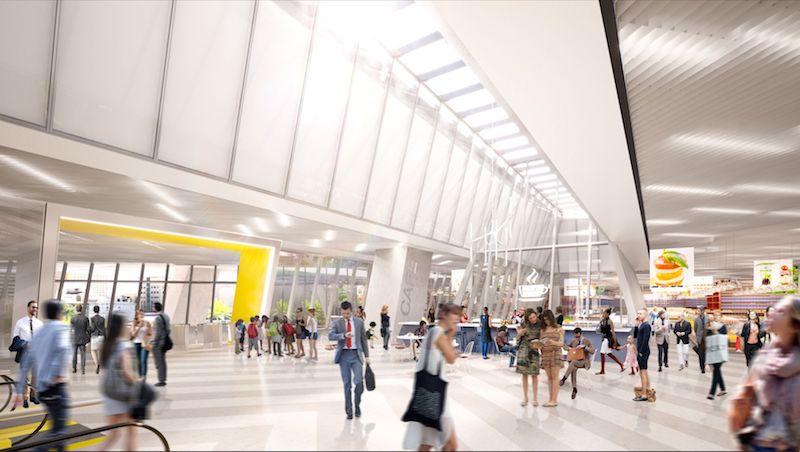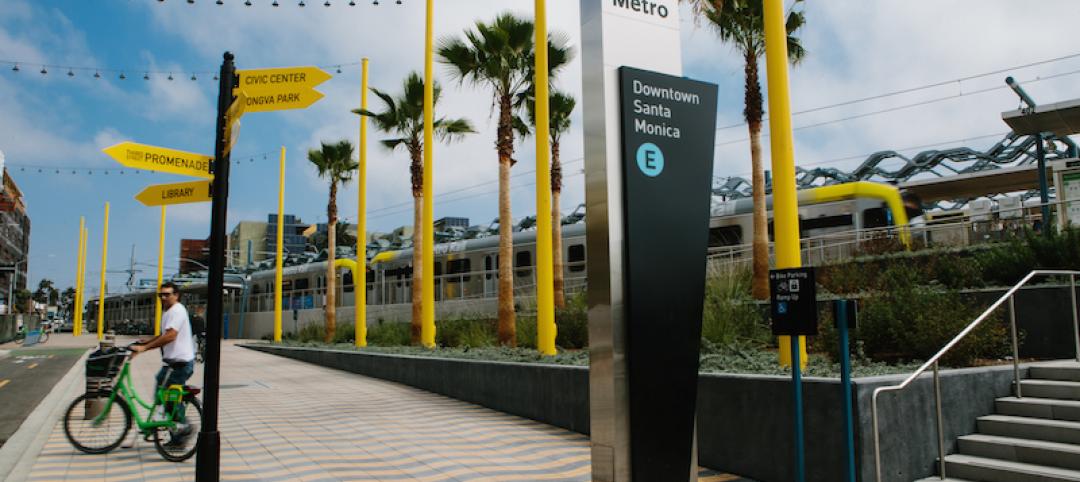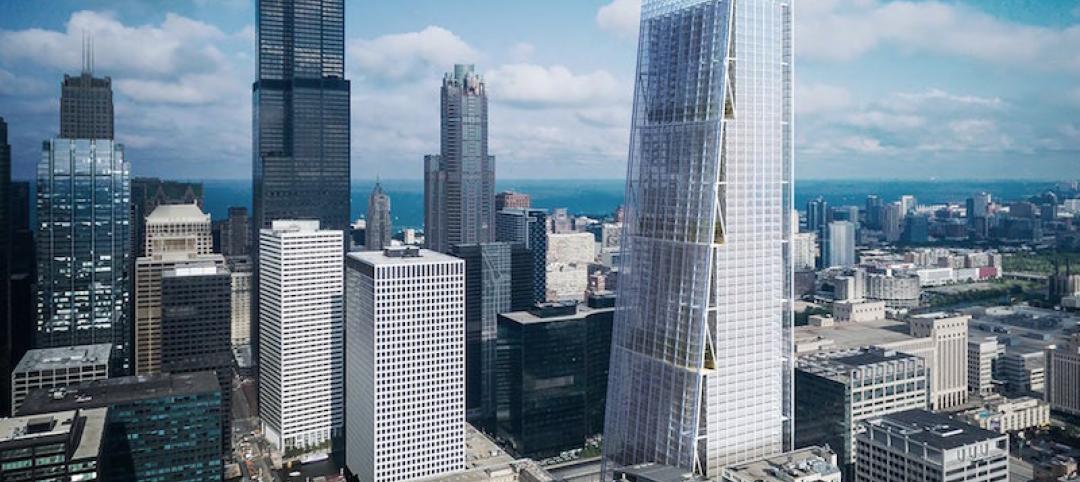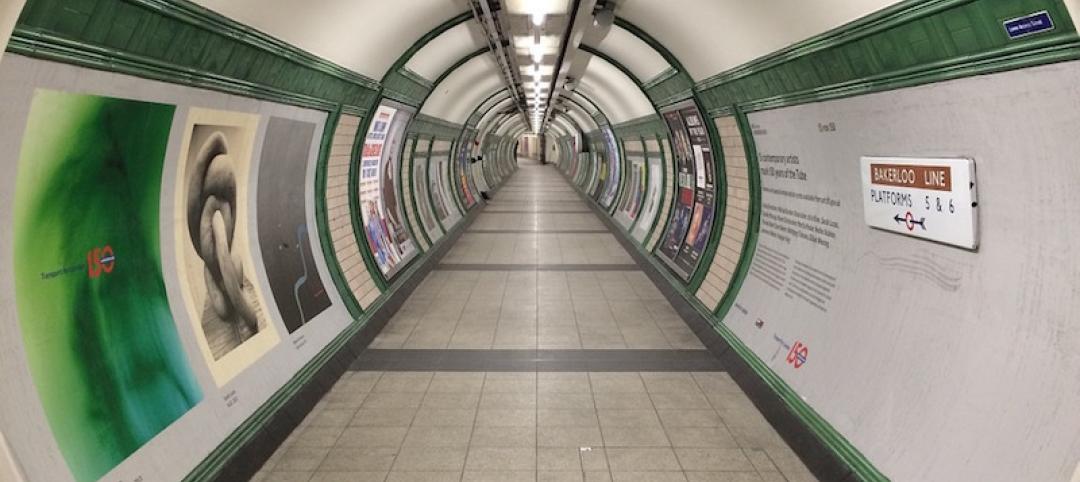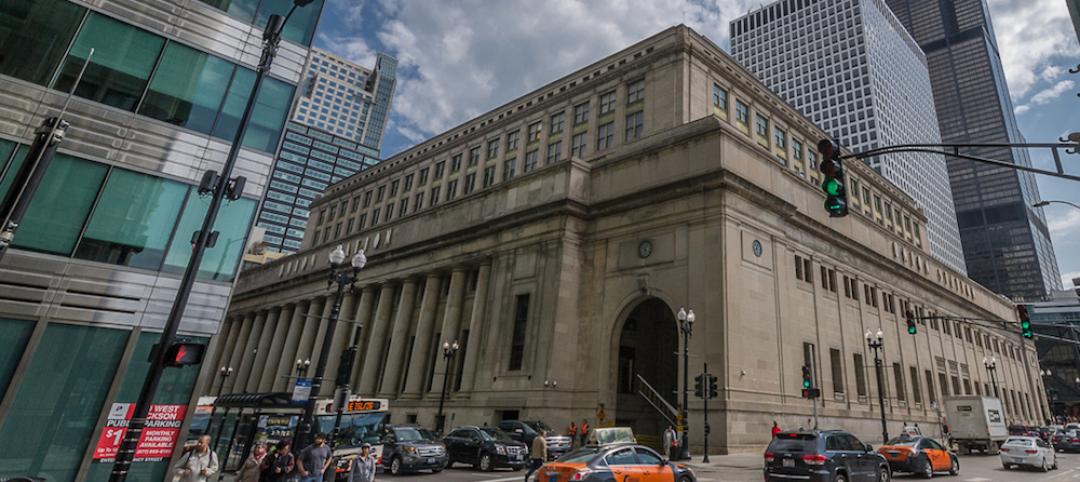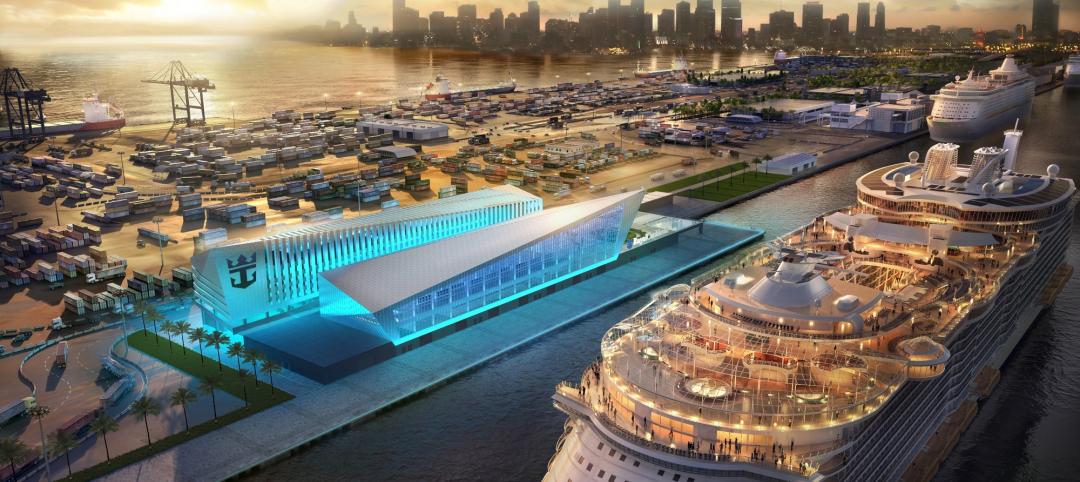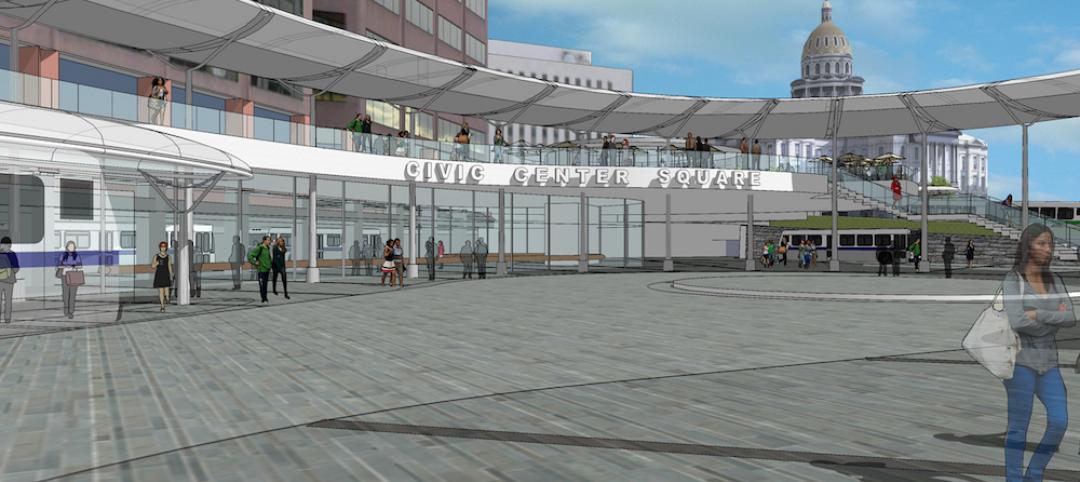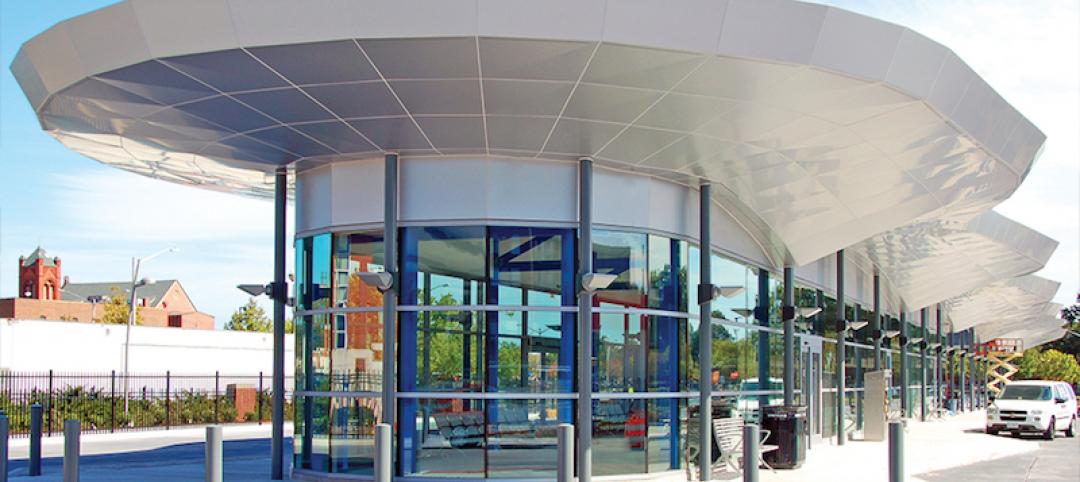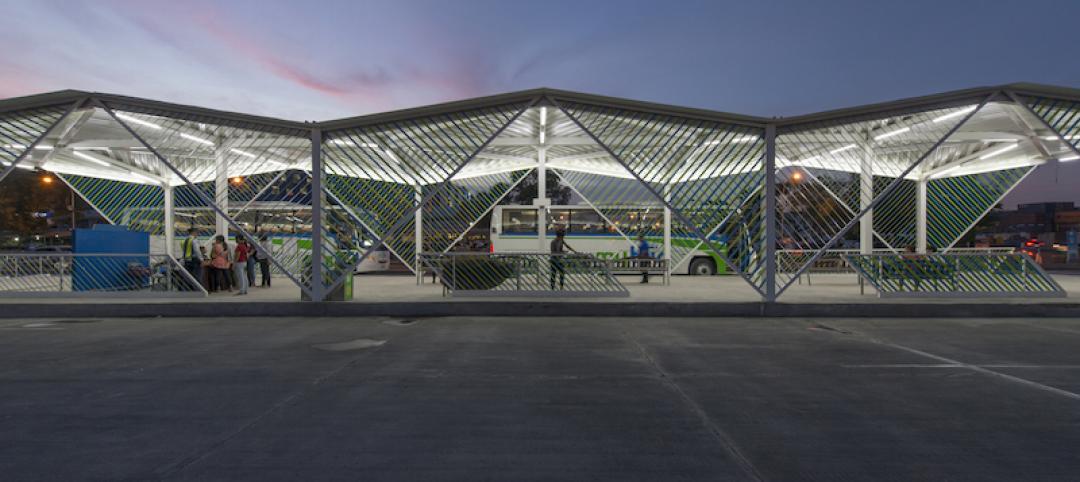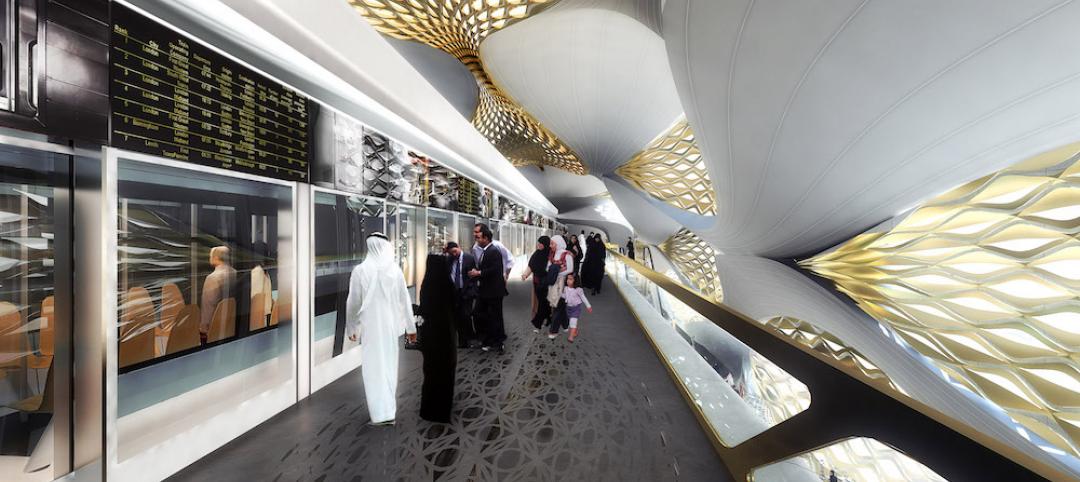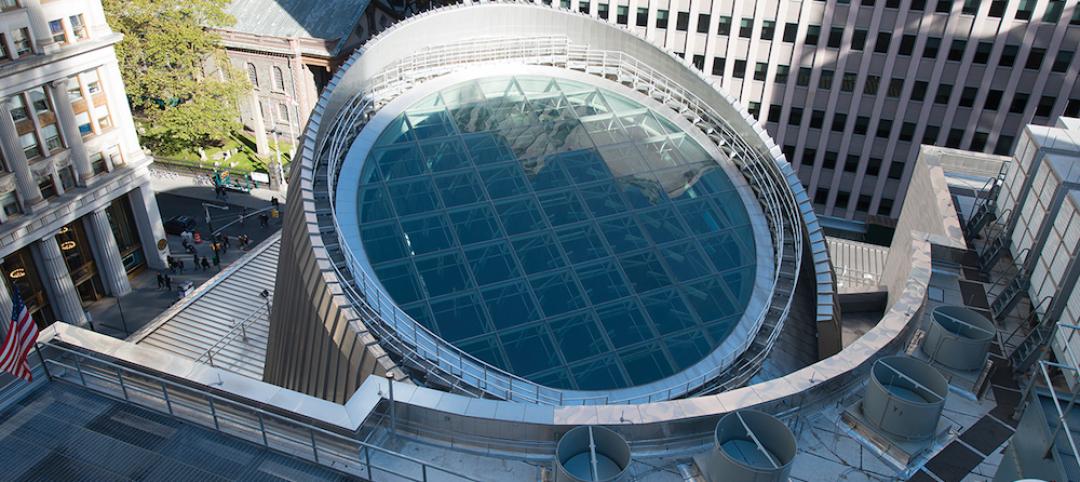Last month, All Aboard Brightline, Florida’s hospitality focused high-speed intercity passenger rail service, extended its service to MiamiCentral, a new 200,000-sf terminal on 11 acres in downtown Miami.
MiamiCentral is part of the only privately owned, operated, and maintained intermodal development in the U.S. Brightline’s rail system now includes nonstop service from Miami to a 27,500-sf station on 4.8 acres of land in downtown Fort Lauderdale, and a 60,000-sf station in downtown West Palm Beach, Fla. The Fort Lauderdale and West Palm stations opened on January 13.
All Aboard Brightline intends to expand this system’s service to Orlando eventually. According to a recent study by the Washington Economics Group, the Brightline rail system is projected to attract more than $6 billion in investments in Florida’s economy by 2022.
All Aboard Brightline secured state approval to sell bonds to pay for this project, whose cost is estimated at $3 billion. All Aboard Brightline is part of Florida East Coast Industries, a Coral Gables, Fla.-based holding company invested in real estate and transportation, with more than $46 billion in infrastructure assets under its management.
MiamiCentral is, in fact, a mixed-use development that spans six downtown blocks. It includes Two MiamiCentral, a 195,000-sf office tower that is scheduled to open late this year; and Three MiamiCentral, a 90,000-sf office tower with 35,000 sf of retail, that opened last December. (Yesterday, The Real Deal reported that Viacom had recently leased 24,000 sf on the 12th floor of Three MiamiCentral, which is now at 95% occupancy.)
The complex will eventually include 1.43 million sf of residential, which is scheduled to open next year.
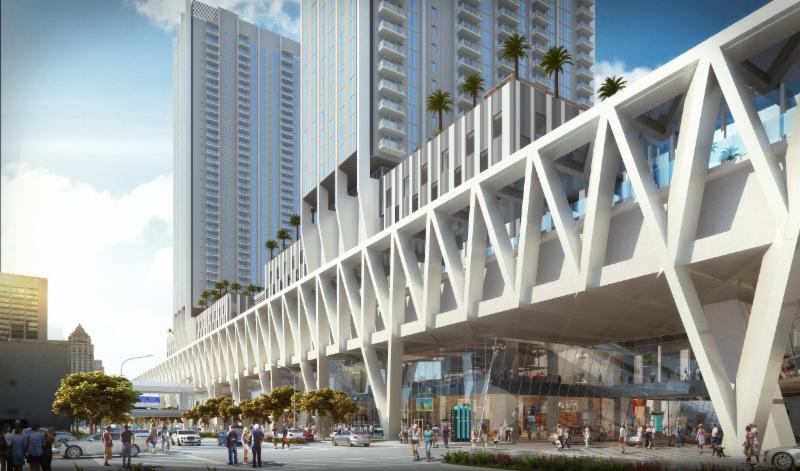
The 200,000-sf MiamiCentral station is elevated 50 feet above street level, where there's leased space for retail. Image: Smilodon GC
The MiamiCentral train station and its platforms are elevated 50 feet in the air in response to the density of the site. Street-level retail spaces are beneath the tracks. Elevated parking garages are situated above the rails and lift vehicles by elevator. A pool and green space sit atop the garage and in between the towers. “What makes the design unique is that it flips the idea of the traditional train station,” says Roger Duffy, FAIA, NCARB, Design Partner on the project. “We built the railway above grade to avoid interfering with existing street flow and, if you dig too deep under Miami, you hit the water.”
Duffy works for Skidmore, Ownings & Merrill, which in association with Florida-based Zyscovich Architects designed the three stations. Rockwell Group designed the interior check-in areas, food and beverage areas that are operated by Brightline, and lounges. Suffolk Construction was the GC on the Miami station, and Moss & Associates built the West Palm Beach and Fort Lauderdale stations.
For MiamiCentral, SOM converted the site of a former 1920s train station—which had been used for decades as a parking lot—into a 21st Century terminal. Commuters can use an app to book their trips and check train schedules. The trains themselves offer riders a baggage rack, bike rack, seating area tabletop electrical outlets, and bathrooms.
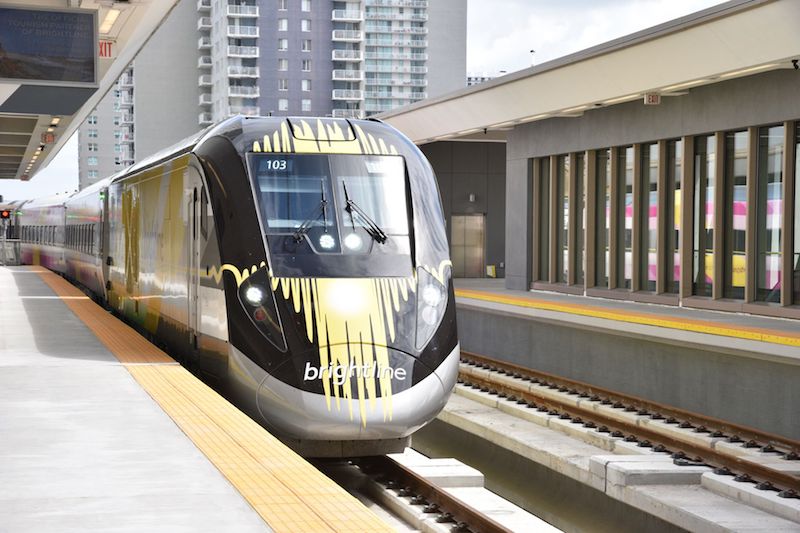
All Aboard Brightline intends to expand its service into Orlando eventually. One study estimates that the new rail system could attract more than $6 billion in new investments. Image: Brightline
One of SOM's primary design objectives was to create a sense of overall unity for the entire transportation network, while conveying a sense of identity for each station. SOM unified the stations' designs by exposing their structural forms—V-shaped bracing—as the main architectural expression, and by bringing in natural light through ample use of glass.
The Fort Lauderdale station rises above surrounding buildings and features a sequence of stacked glass boxes that provide a visual connection to the city. The West Palm station is sheathed in a glass façade, and its departure lounge is suspended 30 feet above the train platform.
Olin McKenzie, AIA, NCARB, Director at SOM, says the intention of this project is to “create new districts in these cities.”
Related Stories
Transit Facilities | Sep 29, 2016
Greenbuild to showcase an infrastructure project for the first time
Skanska-built light-rail extension in Los Angeles achieves Envision’s highest recognition.
Office Buildings | Sep 20, 2016
Sterling Bay proposes SOM-designed office tower near Chicago’s newly opened Transit Center at Union Station
The building is one of several projects that are filling this developer’s plate in this city.
| Sep 1, 2016
TRANSIT GIANTS: A ranking of the nation's top transit sector design and construction firms
Skidmore, Owings & Merrill, Perkins+Will, Skanska USA, Webcor Builders, Jacobs, and STV top Building Design+Construction’s annual ranking of the nation’s largest transit sector AEC firms, as reported in the 2016 Giants 300 Report.
Transit Facilities | Jul 13, 2016
Arup chosen to lead renovations of Chicago’s Union Station
The third-busiest station in the country needs more space.
Resort Design | Jul 11, 2016
Broadway Malyan designs Miami terminal for Royal Caribbean Cruises
The $100 million “Crown of Miami” will provide visitors panoramic views, and it will glow at night.
Transit Facilities | Jul 8, 2016
Perkins Eastman designs Open Transit concept for Denver’s Civic Center Station
Renovations to a 30-year-old bus transit hub will improve commutes and lure visitors.
Sponsored | Transit Facilities | Jun 13, 2016
HRT Transit Center: The Ambience of a Park in an Efficient Bus Terminal
Whether building architecture or catching a bus, everyone’s happy when things run right on schedule.
Transit Facilities | Jun 12, 2016
Philippines’ oldest city getting its first public bus system
New York-based CAZA designed the modular bus stops with the city’s extreme weather conditions in mind.
Transit Facilities | May 20, 2016
Saudi Arabia capital city Riyadh is building a massive public transit system
More than 110 miles of track will connect 85 stations over six lines. The cars can reach speeds up to 90 mph, and Zaha Hadid Architects designed one of the train depots.
Building Team Awards | May 19, 2016
NYC subway station lights the way for 300,000 riders a day
Fulton Center, which handles 85% of the riders coming to Lower Manhattan, is like no other station in the city’s vast underground transit web—and that’s a good thing.


